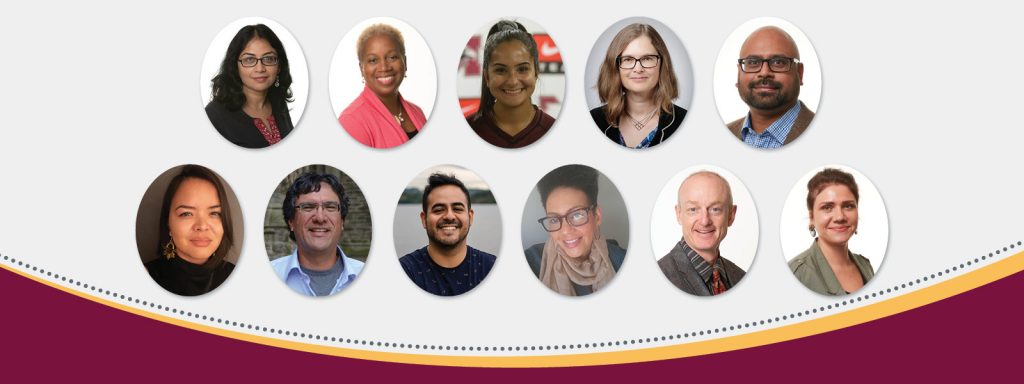
The past few years have highlighted a range of challenges and inequities in society at large and within Canada, including acts of hate against the Asian, Black, Muslim and Latin American/Latinx communities and other groups.
Most recently, we have collectively mourned the recovery of Indigenous children’s remains at the sites of three former residential schools in BC and Saskatchewan. This has led many to take time to reflect this Canada Day.
In light of this, we have asked a range of McMaster scholars and other university thought leaders to share what they’re reflecting on and to share resources to consider during this more muted holiday.
Rick Monture
Juliet Daniel
Rodrigo Narro Pérez
Chandrima Chakraborty
Clare Warner
Theresa Kenney
Marissa Dillon
Kim Jones
Vanessa Watts
Ameil J. Joseph
Mark Walton
Rick Monture, Associate professor, english and cultural studies and indigenous scholar-in-community
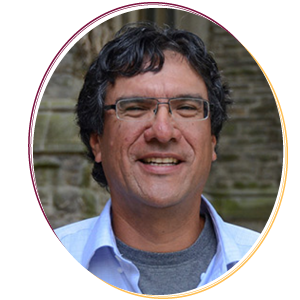
In light of the recovery of unmarked graves at residential schools, everyone is pondering what Canada is and what it will be moving forward. It’s important to note that all Indigenous people have been telling these stories forever and we’ve known about these atrocities, and the violence and deprivation that took place for years. It’s not a discovery or revelation. My hope is that Canadians take July 1 to reconsider the historical narrative of the nation and listen to marginalized voices – Indigenous and otherwise. I do hope that Canadians take this time to think about and reflect on the history of the country and pay attention to when Indigenous people raise these issues.
Recommended reading: My uncle Russell Moses wrote about his childhood experiences at the Mohawk Institute residential school in Brantford, Ont. in his memoirs. Similarly, Basil Johnston, whose letters and papers are at Mills library at McMaster, wrote about his experiences in a residential school in a book called Indian School Days. Another similar book is Indian Horse by Richard Wagamese – it’s a fictionalized account of his residential school experience in which the main character goes on to become a hockey star. Mara Campbell’s famous memoir Halfbreed was re-released in 2019 after being censored by the publisher when it was first circulated in 1973. Campbell’s memoir explores her experience as a Métis woman in Canada.
Juliet Daniel, Professor of Biology and Associate Dean of Research & External Relations, Faculty of Science
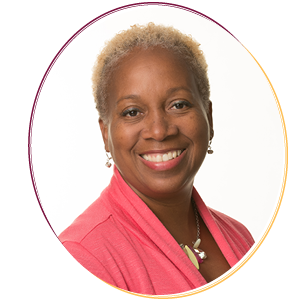 I am reflecting on the name Canada…derived from a Huron-Iroquois word “kanata” meaning “village” or “settlement”.
I am reflecting on the name Canada…derived from a Huron-Iroquois word “kanata” meaning “village” or “settlement”.
As a settler from Barbados, I have benefited from many professional and personal opportunities in Canada but until 20 years ago, I was unaware of Canada’s sordid history of Residential Schools and cultural genocide of Indigenous people. The evil perpetrated by past Canadian Governments and Institutions against Indigenous people are re-traumatizing them again with little accountability or reparations. My heart and soul aches as I ponder the lack of HUMANITY, LOVE and GRACE towards Indigenous people.
Just as we tackled the pandemic, let us collectively have the same urgency to dismantle the “pandemic of anti-Indigenous racism” to restore our humanity.
Recommended reading: I recommend the bookstore “A Different Booklist” where folks can find books by non-traditional authors. Their recommended titles are available here.
Rodrigo Narro Pérez, PhD Candidate, School of Earth, Environment and Society and Co-Convener, Race, Racism and Racialization (R3) Working Group
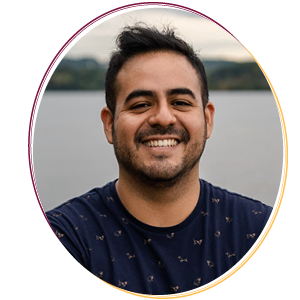
The past year has increased the visibility of the deep inequities and violence that Black, Indigenous and racialized individuals face in North America. In the Black Shoals, author Tiffany Lethabo King brings together discourses of understanding conquest, violence, slavery and genocide to discuss the encounter between Black studies and Indigenous Studies – something that is needed in academia. King challenges and disrupts settler colonialist thinking and challenges us how to think about the possibilities of racial, ethnicity and diasporic studies. I will reflect on King’s call for hemispheric understanding and coalition building that includes North, Central, and South America and the Caribbean. For me in particular, as someone from Latin America (Perú), I will reflect about what this may look like at McMaster, and in particular about the possibilities of: what would Latin American Studies at McMaster look like if we respond to King’s call.
Recommended reading: The Black Shoals: Offshore Formations of Black and Native Studies by Tiffany Lethabo King.
Chandrima Chakraborty, professor, English and cultural studies
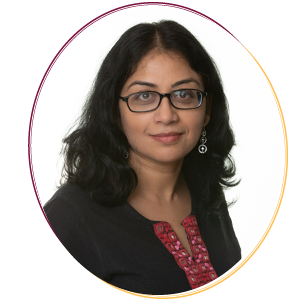
Inadequate attention to the ongoing legacies of colonialism in the curriculum of Canadian educational institutions continues to bolster relations of power and inhibit cross-cultural learning. The past year points to the urgent need for each one of us to do much more: as instructors, researchers, individuals, and community members. In light of the historical and ongoing losses that are slowly seeping into public consciousness, I feel a deeper commitment to find ways to express solidarity that recognizes and respects profoundly personal losses, while broadening a collective sense of grief and responsibility.
Recommended reading: I would like to suggest this recent op-ed in Hamilton Spectator, where I reflect on remembrance, grief, and Canadian history in light of the lessons of the Air India tragedy and the discovery of the 215 children’s graves in Kamloops.If you prefer a book, I also recommend Remembering Air India: The Art of Public Mourning.
Clare Warner, Senior Advisor, Equity, Inclusion and Anti-Racism, Student Affairs
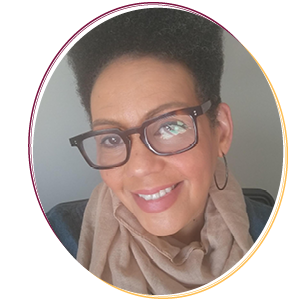
This July 1st, it’s incumbent on us to ask tough questions about the ongoing impact of our colonial past. Questions, for example, about what incarceration rates, educational outcomes and the destruction of the environment, tell us about who and what are valued.
We can’t change Canada’s colonial past, but we can confront its ongoing effects by committing to working together to disrupt historically constructed, institutionally sustained disparities.
Recommended podcast: I’ve recently discovered The Secret Life of Canada, a podcast that aims to decolonize Canadian history by highlighting the stories that definitely didn’t feature in your high school textbook. Have a listen.
Theresa N. Kenney, PhD Candidate, English and Cultural Studies
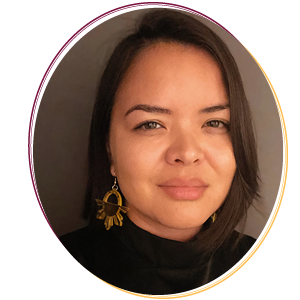
I’m reflecting on the important call to cancel Canada Day and its celebrations following 154+ years of settler colonial violence as well as this past year’s intensified racism. July 1st (and the days that follow) is an opportunity to understand ongoing violent histories that have everyday consequences for Black, Indigenous, Asian, and many other people of colour in Canada. Specifically, I am exploring histories involving Asian Canadians, Indigenous communities, and their shared alliances to highlight the importance of listening to, learning with and celebrating Indigenous peoples in the present, which help us all to better enact solidarity and challenge racism.
Reading recommendations: Iyko Day’s Alien Capital, Lisa Lowe’s The Intimacies of Four Continents, and Rita Wong’s “Response to Leroy Little Bear”
Marissa Dillon, Executive Member, McMaster Black Student-Athletes Council
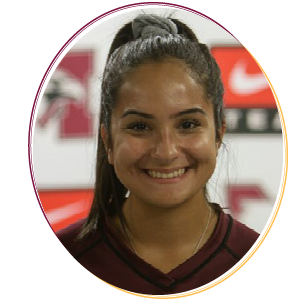
July 1st should be a day spent in acknowledging and educating ourselves on the historical systemic oppression and ongoing genocide endured by Indigenous peoples at the hands of the state; educating ourselves far beyond what we have been taught through the education system — as the system itself, the curriculum and its tools are heavily informed and abide by Western colonial frameworks and ideologies. Along with this, an important piece I will be reflecting upon is not only how, through the push of multiculturalism and democratic principles, further enables the state in continuing to commit acts of genocide against Indigenous communities, but also recognizing the responsibility and role I possess as a settler-Canadian on Indigenous lands in dismantling systems of oppression and within the work of reconciliation. On July 1st, I will not be celebrating a day that praises a nation built upon genocide and rather, will be utilizing my position as a settler on Indigenous lands to amplify Indigenous voices, and will be standing in solidarity with the Indigenous peoples of the land now called Canada— wearing orange, honouring the lives of the children lost and the survivors of the Residential School System and pushing for justice.
Recommended book and film: Seven Fallen Feathers: Racism, Death and Hard Truths in a Northern City by Tanya Talaga. I also recommend watching We Were Children, a film by Tim Wolochatiuk about Canada’s residential school system.
Kim Jones, Associate Professor, Chemical Engineering, Chair, Ontario Network of Women in Engineering
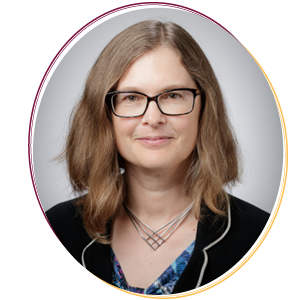
This article (Thinking about Racism in Engineering Education in New Ways by Joel Alejandro Mejia, Renata A. Revelo, and Alice L. Pawley), effectively frames the racism embedded in our institutions and gives concrete next steps.
Since I’m also involved in outreach, I thought this article (Decolonizing education with Anishinaabe arcs: generative STEM as a path to indigenous futurity by Ron Eglash, Michael Lachney, William Babbitt, Audrey Bennett, Martin Reinhardt and James Davis) had some great reflections on culturally situated design tools (more here:https://csdt.org/ ). Engineers (including me!) often struggle to see how settler perspectives have shaped our learning, so I am really looking forward to reading Decolonizing academia: poverty, oppression and pain by Clelia O. Rodríguez.
Vanessa Watts, Paul R. MacPherson Chair in Indigenous Studies
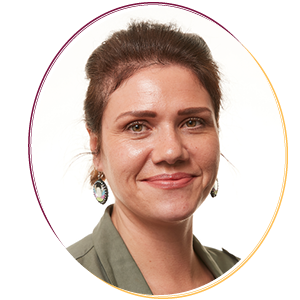
On July 1st, I will be reflecting on how in the past weeks, truth has thrown some much deserved cold water on reconciliation. In recent years there has been such a rush to reconcile. Why? This should not an exercise in relief for a nation whose atrocities are still unfolding — we are still finding truth.
As such, a sharp, collective well of grief and anger has emerged. I will be reflecting not just on the 94 Calls to Action, but on stories untold, the lives and the childhoods that were stolen, and how our communities are forever changed. I will also be thinking about all the good work being done to ensure our culture, language and governance systems continue into a long future. This is not about resilience, though; it is not about adapting to atrocity. Rather, it is about a deep love and respect for who we are and where we come from.
Reading recommendation: The summary of the final report of the Truth and Reconciliation Commission of Canada
Ameil J. Joseph, Associate Professor, School of Social Work

On July 1st I reflect on how we can respectfully engage with the complexities of this day, with the hopes of a just future. I think about how we learn, teach, and know about the social, political, historical and contemporary contexts of coloniality and racism with the goal of change for the better.
We can all do more to engage with these complexities as they relate to the histories of Hamilton, chattel slavery that was practiced on these lands, the colonial policies and practices designed for the erasure of Indigenous peoples, and how these ideas emerge from a confluence of historical trajectories that shape how we think about who belongs and who does not. The legacies of eugenics, genocide, and settler-colonial discourses that continue to be relied upon need to be authentically confronted for a just future to become our present reality.
Dr. J Mark Walton, Vice Dean, Faculty Affairs, Faculty of Health Sciences
 This last year has been tumultuous and disruptive in so many ways and I have seen faculty, staff, learners and our community rise to the challenge. There have been great advances in education and research by members of McMaster, and many of our clinical faculty have served on the front-line throughout the pandemic. The COVID-19 pandemic has highlighted longstanding inequities but there has also been the start of a huge shift within society with respect to equity, inclusion and Indigenous Health. The horrific discoveries at residential schools have brought to focus the history of Canada that we must reflect on. We can and must do better.
This last year has been tumultuous and disruptive in so many ways and I have seen faculty, staff, learners and our community rise to the challenge. There have been great advances in education and research by members of McMaster, and many of our clinical faculty have served on the front-line throughout the pandemic. The COVID-19 pandemic has highlighted longstanding inequities but there has also been the start of a huge shift within society with respect to equity, inclusion and Indigenous Health. The horrific discoveries at residential schools have brought to focus the history of Canada that we must reflect on. We can and must do better.
Reading recommendation: Seven Fallen Feathers by Tanya Talaga
